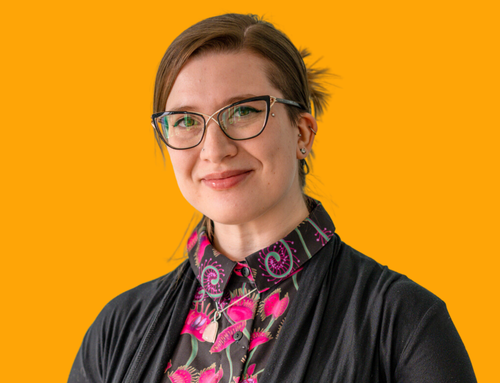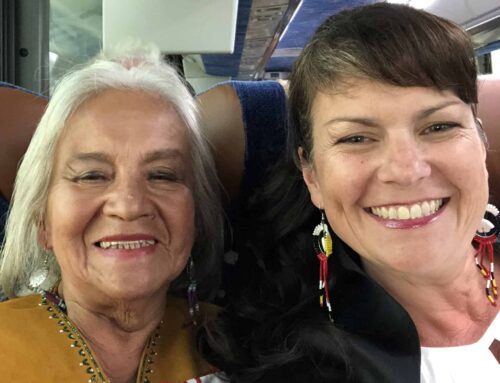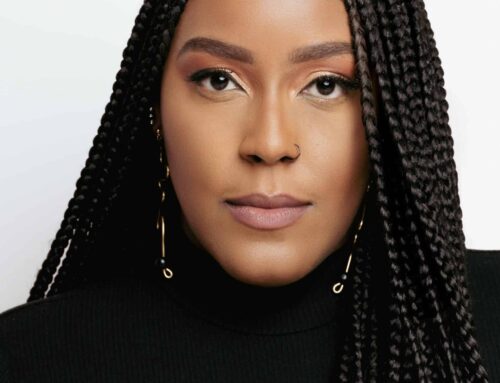
Maisha: I’ll start with why I decided to become a mentor. I had been volunteering as a leader in the YWCA weekly camps but I always worked with different girls. I always wondered afterwards how they were doing but I never saw them again. When I was in Grade 11, I decided to become a mentor because I wanted to work with the same group of girls. One of the most important things is to see how they develop over time.
Amar: Yes, you get to see them improve. Being the oldest of my siblings, I didn't have an older role model and I wanted other girls to have that. I wanted to be proud that I was helping girls become better. I’m not a formal mentor but I’m volunteering—I started last year in the summer.
Maisha: Well, you might not have the official title but if you’re mentoring someone, you are a mentor. I mentored in this program called Ms Media. We talked about the bad affects media can have on you, but also how you can use media to share your own voice.
Amar: Media is such a big part of everything that’s happening today. When girls see something, they don't always realize what media is showing is not always real.
Maisha: When I first moved from being a participant to being a volunteer, it was kind of hard for me to connect with the girls because I felt they just saw me as someone who was there to lead the programs or maybe clean up, but not really as a friend. I was worried because I knew how well my mentors connected with me and I wanted to do the same. Something that really helped me to build relationships with them was to let them help me do things, like set up the room, or plan the activities. That really helped connect them to me and I’ve been using it ever since. You don’t want things to be one-way. Anything that’s one-way won’t feel personal and you won’t feel connected to that person. In the beginning I wanted to do everything for the girls and I learned that wasn’t the route to go.
Amar: When you’re a mentor you develop a relationship with the girls that’s different from your relationships with friends or sisters. You’re starting a new relationship and you’re in control of it. It gives you a chance to change or to learn from someone new. I really feel good when I’m talking to those girls because everyone has their own story and I like to see that. And we live in the same neighbourhood.
Maisha: Everyone has their own ideas about the right way to be, but when you’re a mentor you have to throw that away. Because if they ever feel judged, then all of the things you’ve worked on with them get revoked because if someone feels judged they will close themselves off to you. You have to be an open-minded person and someone they can go to whenever they have issues. I learned in school that if you expect something of someone, they try their best to live up to it.
Amar: A mentor can help you become who you really are, your own self. Sometimes girls get burdened by expectations like wearing makeup, or wearing pink, or styling their hair. That can make them uncomfortable if they don't want to do those things or it’s not who they are. It’s not always the external pressure, thinking that people will look at you and say “She’s so bad at this.” It’s more internal and what you think of yourself.
Maisha: I was really lucky because I had a very diverse group of mentors. Not in terms of race or culture but in terms of personality and what they liked.
Amar: The girls are always really different from each other, but we always find ways to make them comfortable with each other and learn from each other’s experiences.
Maisha: Seeing them support each other, even outside the program, is really great.
Amar: Yes, now they have a new group of friends. It’s so important to have different groups of friends.
Maisha: The expectations we set at the beginning of friendship tend to stay the same throughout the friendship, so it’s great to be able to create new friends in a place that sets high expectations and where you learn not to judge other people. This carries through in other friendships too. In school, people just tend to hang around with people the same as them. But when you're outside in the world, you don't get to just hang around with your best friends and people just like you. You have to be able to connect with other people.
Amar: When I was in the girls’ program, I thought the leaders and volunteers were blessings. There is no other word worthy enough to describe them. They give you the confidence and courage to go out into the world and pursue your dreams. No matter what you need help with, they will help you. They are solid proof there are people in this world who will help you achieve your dreams. All you have to do is recognize them.
When Amar was younger, she attended “Something For The Girlz,” a girls’ program delivered by Thorncliffe Neighbourhood Office. Maisha attended two different programs: Ms. Media and Safe Sisters, which are both delivered by YWCA Toronto. All three programs are funded in part by the Canadian Women’s Foundation.
Read Maisha’s Story.
Read Amar's Story.







